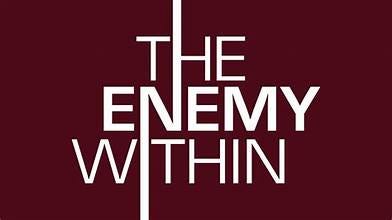The Enemy Within
Everyone knew dissenters existed, but the ordinary people believed they were safe—protected by their government, a legal system, the military, and a powerful economic system. Life went on as usual, without much worry.
Then, suddenly, they woke up to find their world unrecognizable. Everything they had counted on lay in ruins at their feet.
As had happened many times before, a newly elected leader had taken over the reins of power. But unlike others, this ruler had no intention of preserving the existing system. Everything they had taken for granted vanished overnight. The very legal system they once believed would protect them was now under siege. He was going to dismantle it. Opposing judges were purged. Independent lawyers driven out. The Supreme Court was now full of his allies. Congress had been infiltrated for years and was now too dysfunctional to resist him.
All branches of government fell under the control of those who would do the ruler’s bidding. Dissenters were fired. Whole institutions were gutted. It felt like a scorched-earth attack on everything that had come before.
Businesses, desperate to survive, bent to his will. The media, instead of resisting, seemed willing to do whatever it took to stay in favor. Colleges and Universities seemed willing to do whatever was necessary to curry favor. The transformation was complete—a fait accompli.
It became clear: if the people wanted to resist, they would have to stand up for themselves. But they couldn’t do it alone. Those who spoke out individually were swiftly crushed. Only by organizing—by standing together—could they hope to make their voices heard. If they wanted a future in this society, they would have to fight for it.
Yet the most disheartening realization was that the threat had not come from a foreign enemy. It had come from within. As the comic strip Pogo put it in 1970,“We have met the enemy, and he is us.”
The barbarians were not at the gate, they were right here at home and had always been there. Over time they had infiltrated the government, the military, the police and many other parts of the society. They were the private militias allowed to thrive unchecked; the gun culture fiercely protected; the domestic terrorists who had operated in plain sight, given quiet approval by those in power; even the extremists, bigots, and insurrectionists, who had once been condemned, were now emboldened, pardoned, and rewarded.
This was a new day. A new nation. But it was unrecognizable—nothing like the country they had once fought to preserve.
The battle ahead would be hard—very, very hard.






